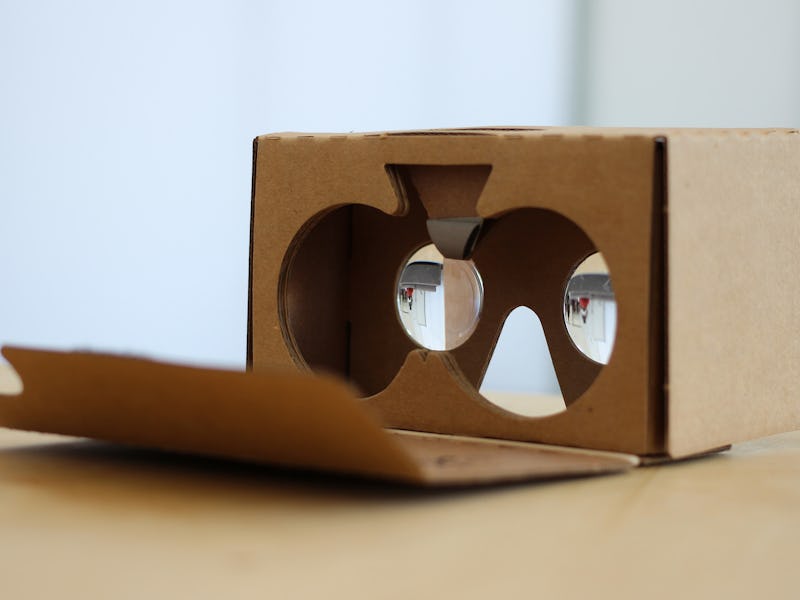Google Cardboard Sells 5 Million Units! So What Does That Mean?
The low-cost virtual reality viewer hits a milestone but does that matter?

In the year and a half since the release of Google Cardboard, over 5 million of the virtual reality viewers have been shipped. As far as adoption rates for new technologies go, that’s an astounding number. It took about three years for Apple to sell that number of iPods. But Google Cardboard is cheap, and virtual reality is exciting.
Google just unveiled its progress report. Those 5 million users — whether or not they include the 1 million that the New York Times is sending out — have been active, installing over 25 million Cardboard-compatible apps. And two-fifths of that total has come in just the past two months. The single most popular app, “A Chair in a Room,” looks quite frightening. (If utter horror isn’t your style, maybe check out some of these other virtual worlds.)
The next most popular app was “Vrse”, which takes you around the world. Here’s a 360º preview — but make sure you stick around for the helicopter over Central Park.
Cardboard users have watched over 350,000 hours of YouTube in the 19 months it’s been around. To put that in context: there are just 13,870 hours in 19 months. If we assume (against all odds) that each and every one of the 5 million users watched YouTube at some point in those 19 months, that means the average Cardboard user watched about 4 minutes of videos. Google also unveiled that, since its December release, Cardboard users have taken over 750,000 photos with Cardboard Camera.
Google’s also sending Cardboard-equipped school kids — more than half a million of them already — around the planet — but in virtual reality. The relevance of those already-dated textbooks is fading quickly. The prevailing attitude that, these days, school should be entertaining and should incorporate the most modern technologies might seem unsettling, but it’s hard not to admit that VR and education are a pretty powerful match. On that front, though, Google needs to keep up with Matt Cook down at the University of Oklahoma.